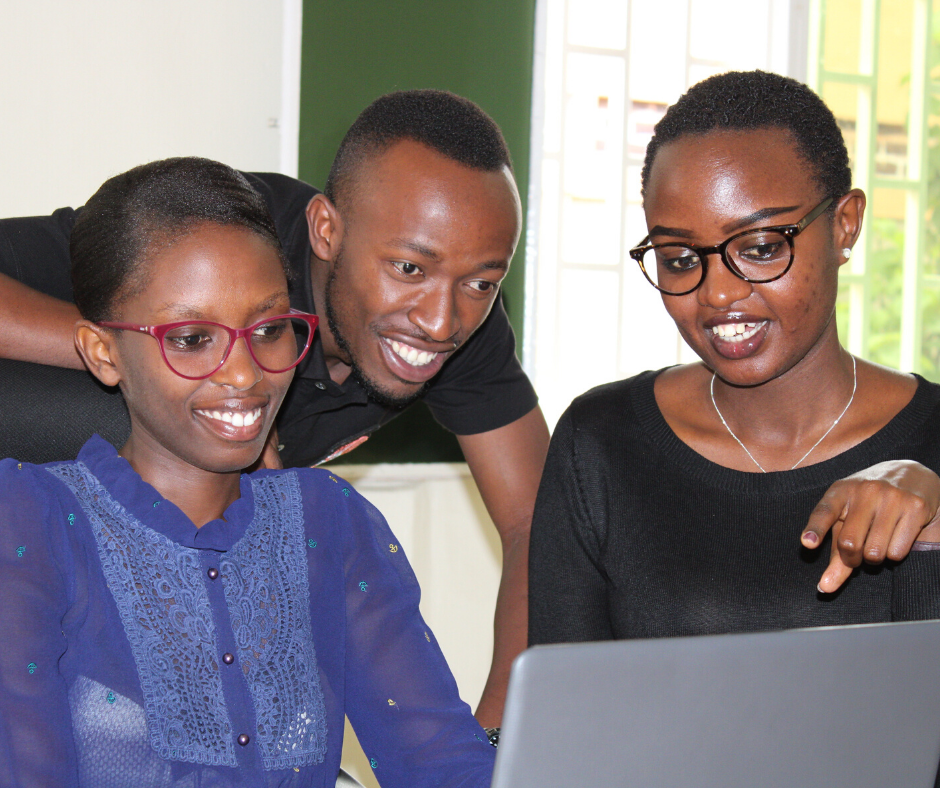– a commentary by CHANCEN International founder Batya Blankers

Over the last 10 weeks CHANCEN International has been thinking about this non stop. You see, we have made it our mission to ensure that the most vulnerable students have access to high quality education. And now more than ever we take this responsibility very seriously.
To date our members, which is how we refer to the individuals who sign our fair and ethical financing contract, all go to institutions of higher learning in Rwanda. 1,300 members attend either Kepler or Davis College/Akilah Institute, both prestigious and highly acclaimed education institutions.
On the day Rwanda locked down, meaning that all students could not attend school and some even needed to relocate out of student housing, our team met virtually to plan how we could best support all our members. We did not fully comprehend how the world would change. Yet, we knew one thing for sure: with so much uncertainty we needed to provide our members with some level of certainty, even if it was just to remind them that we are there for them.
One of the immediate actions we took was to notify our graduates that they would not be required to make repayments over the next 3 months, even though an Income Share Agreement (ISA) adapts to a person’s income so the risk is already greatly reduced for our members. We knew however, though some members may have the same income, their financial responsibilities may increase as the economic change affected their family members.
How are we able to do this as a business? Simply put, this is the beauty of an Income Share Agreement model. The repayment period of our students may be slightly longer than a conventional loan but it is income-based, and allows for flexibility during hardship. Miguel Palacois, the father of ISAs, reminds us: “Every time you hear about students who can’t repay their student loans, you have to think, well, who designed the system in which someone gets money for their tuition and they don’t have a job and they still have to pay?”
We have many examples across the world and in Africa of how student financing should not be done. During this time even the most commercially minded institutions recognised that it is not acceptable to ask graduates to pay their loan installments during a global crisis, but if they didn’t ask them how would the financial institutions survive – their risk calculations depended on this?
We have witnessed how tens of thousands of students graduate without employable skills and the institution they learnt in cashes a big cheque. Shouldn’t the education institution always be incentivised to give their students the best?
We have witnessed families in unmanageable debt cycles with their micro lenders trying to get their children through school. How can we sleep well at night knowing that the poorest families on our planet pay around 30% interest on their loans?
We have seen young people leave university with a degree that they cannot relate to on any level as they were forced to study this subject due to the only available government scholarship. How can a developing economy support access to education that truly serves the growth that is needed in its society?
These are all big topics. They are big questions. We have chosen to tackle one part of the problem, as a puzzle piece we fit in with other great institutions that do their part. Now, more than ever it is imperative that we create examples of student finance that work. There are some already out there: Lumni, the Australian Government, the BAföG system in Germany (financial aid for students with income based repayments) and lastly the organisation that inspired CHANCEN – Studierendengesellschaft.
The CHANCEN team in Rwanda and Germany are committed to ensuring that we protect our students and graduates rights (read our article on the concrete support steps we took). Even though we will not be able to finance any new students in Rwanda this year due to a lack of financial resources, we will continue to serve our current students to ensure that they can graduate and prepare for a new post-Corona world. For our graduates, we have started fundraising towards helping them restart their businesses. We are also working closely with Kepler who is doing an excellent job of supporting the private sector, the businesses that employ their graduates, to move to a more digital and remote working world.

